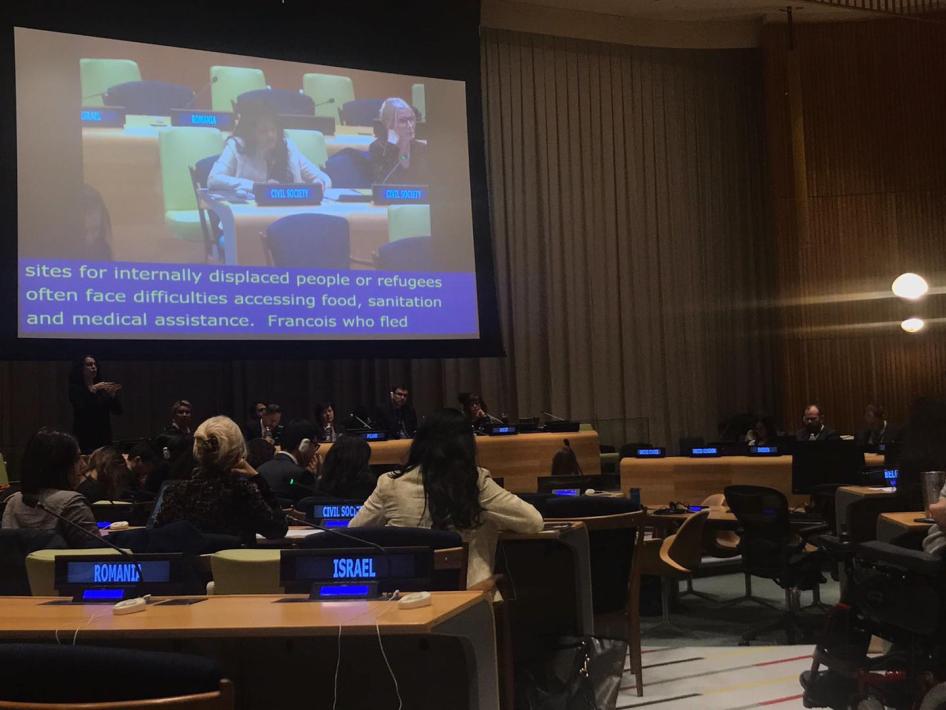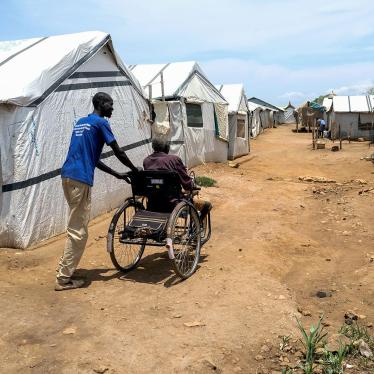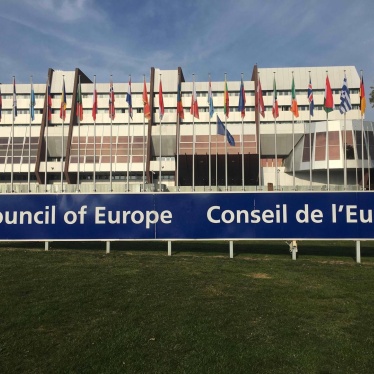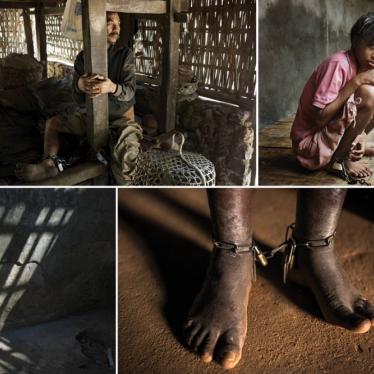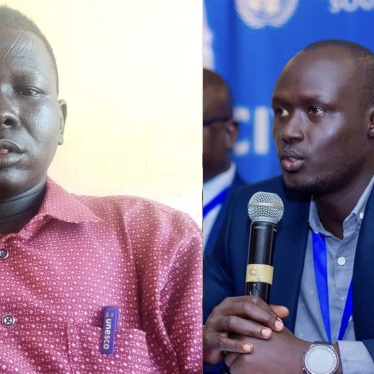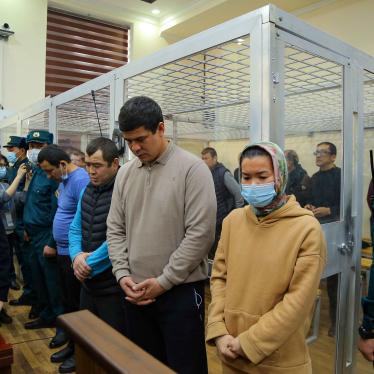We would like to extend our appreciation to the Permanent Mission of Poland and the other co-sponsors of this Arria meeting for bringing the situation of persons with disabilities in armed conflicts out of the shadows, particularly on the occasion of the International Day of Persons with Disabilities today.
Council Members, Member States, distinguished colleagues.
In 2015, Human Rights Watch interviewed Andet, a 27-year-old man who uses a wheelchair, in Bangui, Central African Republic. This is how he experienced an attack by the Seleka rebels, during which his wheelchair was looted:
“They came and started killing people. I was fast asleep when I heard gunshots and woke up to find myself alone at home. My parents had fled without me. I started shouting and crawled to the entrance of my house but when I looked outside, there was no one.” One day later, a young boy carried Andet – many times his weight – a few kilometres to the nearest IDP camp.
Over the past years, Human Rights Watch has documented the heightened risks faced by people with disabilities in conflict areas including Central African Republic, Colombia, Iraq, South Sudan, Syria and Yemen.
We have found that persons with disabilities in situations of armed conflict have been abandoned, and faced violent attacks, forced displacement, and even ongoing neglect in the humanitarian response. Their plight, however, has been largely invisible.
We therefore hope to bring some of their voices to those with the power and responsibility to act.
In South Sudan, a 45-year-old woman named Mary told Human Rights Watch in 2017:
“When the fighting broke out, we fled to the UN compound. We left my mother and brother-in-law behind because they couldn’t walk, and we couldn’t carry them. [Another relative], who had a mental health condition, would not leave his father behind so they all burned together in the fire.”
In many cases, persons with disabilities could not escape the violence simply because they had no wheelchairs, tricycles, or crutches, which were lost in the chaos, left behind, or looted.
In other cases, persons who are deaf or have a psychosocial or intellectual disability were shot or attacked simply because they didn’t hear, know about, or understand the danger they were facing.
Persons with disabilities who managed to reach sites for internally displaced people or refugees often faced difficulties accessing food, sanitation, and medical assistance.
“François,” who fled Ndassima, Central African Republic, described his struggles at the PK8 camp to Human Rights Watch in 2017. He said: “The access to the toilets is so difficult. I have to walk with my hands and I don’t have gloves. I must wrap my hands in tissue if I can find it. Most of the time I can’t find it. Honestly it makes me pity myself.”[1]
Hanan, a 4-year-old girl with cerebral palsy and epilepsy in Yemen, needs medications that have become unaffordable as the conflict has continued. Hanan’s father told Human Rights Watch: “[With regular] medication, she experienced an epileptic seizure only once every two weeks. But now she experiences a seizure twice a day.”
Protracted conflicts – such as in Central African Republic, South Sudan or Afghanistan – have increased or exacerbated disabilities and trauma.
Two years ago, I met a woman who fled Afghanistan who told me she regularly wakes up with nightmares, because of the violence and brutal killings she witnessed in Kabul. She told me that she has suicidal thoughts when she looks at herself in the mirror, but she has had almost no access to psychosocial support.
Council Members, Member States, distinguished colleagues,
Today’s landmark Arria formula meeting – held on the International Day of Persons with Disabilities - sheds light on the disproportionate impact of armed conflict on people with disabilities. This is a great step forward.
But, more needs to be done.
First, the Security Council should step up efforts to gather evidence about the risks faced by people with disabilities. Without effective UN monitoring and reporting, the full impact of conflicts on people with disabilities will remain unclear.
Second, every UN peacekeeping mandate should explicitly call for the protection of people with disabilities as part of its protection of civilians mandate. We were pleased to hear the representative of the United Kingdom call on the Council to commit to this today.
Third, the Security Council should also urge governments and UN agencies to take a more inclusive and participatory approach toward people with disabilities during conflicts, in the spirit of “Nothing About Us Without Us”, as the US representative reminded us.
Building on this meeting today, we urge the Security Council to hold an open debate on the situation of persons with disabilities as part of the peace and security agenda in 2019.
The Security Council’s mandate on protection of civilians includes all civilians – including people with disabilities. Let’s make sure that the voices of Andet, Mary, Hanan and countless others with disabilities resonate in this chamber and echo across all relevant UN agencies.
Thank you.
[1] https://www.hrw.org/news/2017/06/21/central-african-republic-people-disabilities-high-risk
